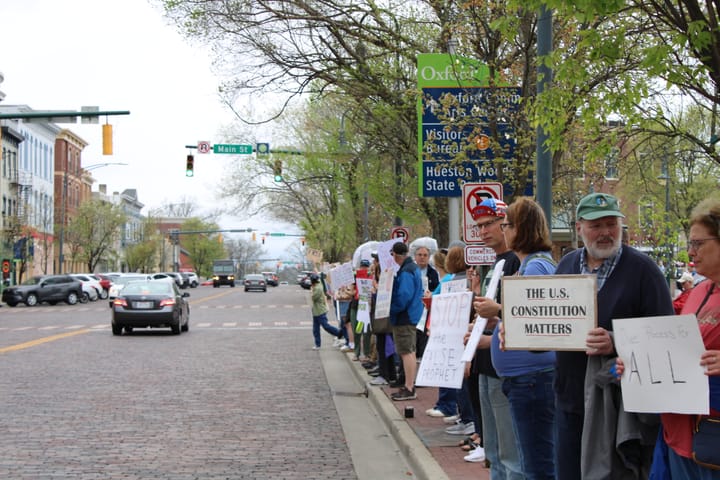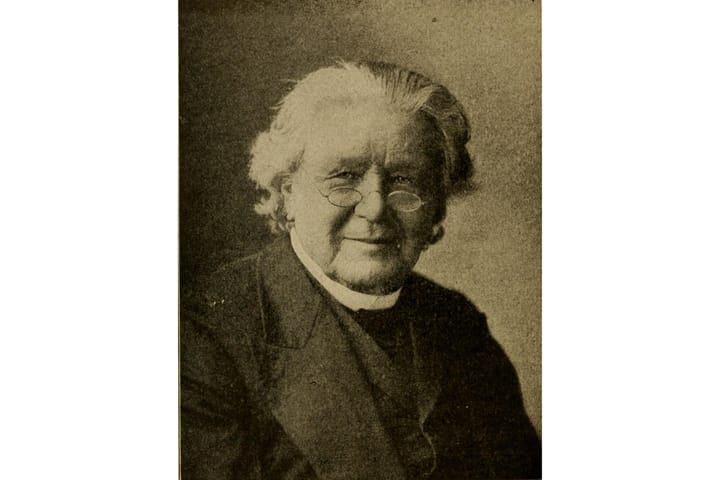Thread Up Oxford introduces changes to support mission of textile waste reduction
Faced with financial pressures, Thread Up Oxford has changed its nonprofit model to continue its mission to reduce textile waste in town.
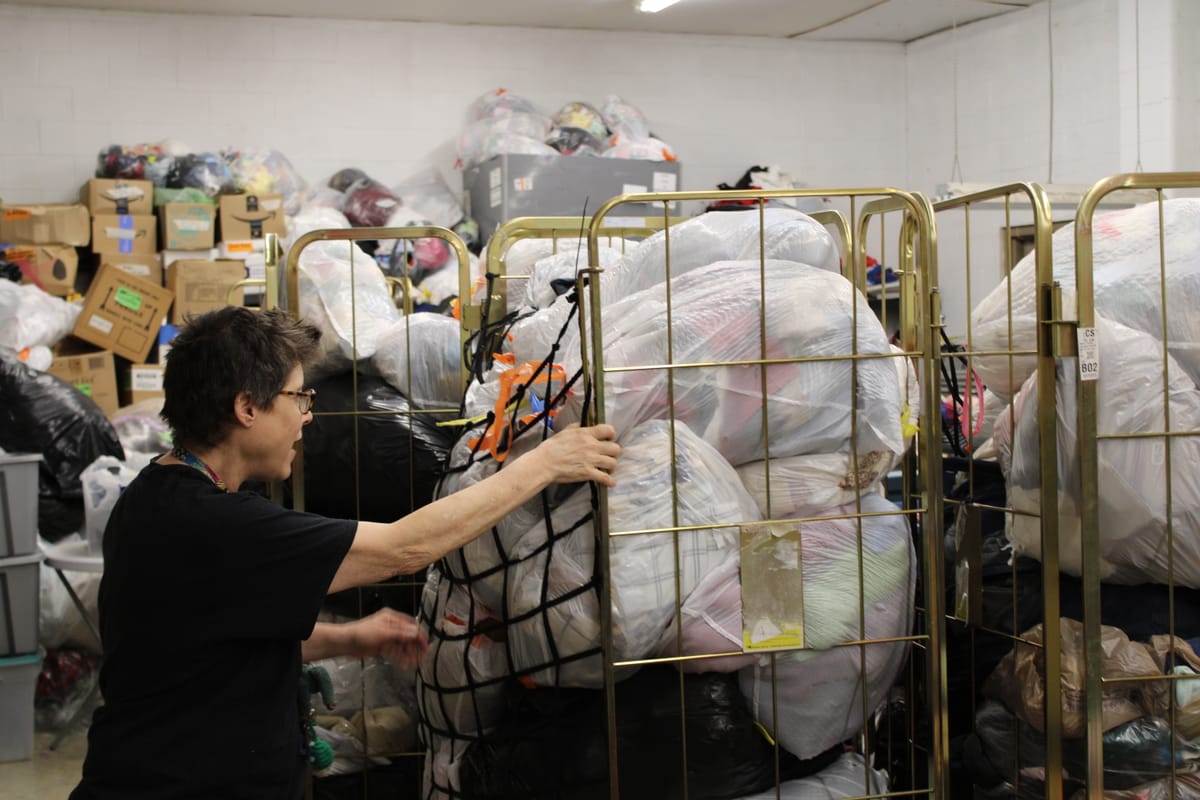
Every year, Americans discard more than 100 pounds of textiles per person. Less than a fifth of that gets recycled, according to the Environmental Protection Agency.
Since 2021, Oxford resident Shana Rosenberg has encouraged a more circular clothing economy locally through her nonprofit organization, Thread Up Oxford. As time has gone on and the clothing has piled up, though, Rosenberg said Thread Up recently had to change its approach to stay viable.
“I used to like to take stuff in for no processing fee because I want to encourage people to come here to dispose of their textile waste,” Rosenberg said. “But [we’ve been] super in debt just to keep ourselves going. Our fundraising game has not been on point.”
Rosenberg started Thread Up in 2021 by doing textile drives. The sorting started in her basement, but she quickly outgrew the space and rented multiple storage units. By mid-2022, she knew she needed to get commercial space to handle the volume of clothing coming in, and since then Thread Up has expanded to two locations: a drop-off center on College Corner Pike and a storefront, Uptown Threads, on Church Street.
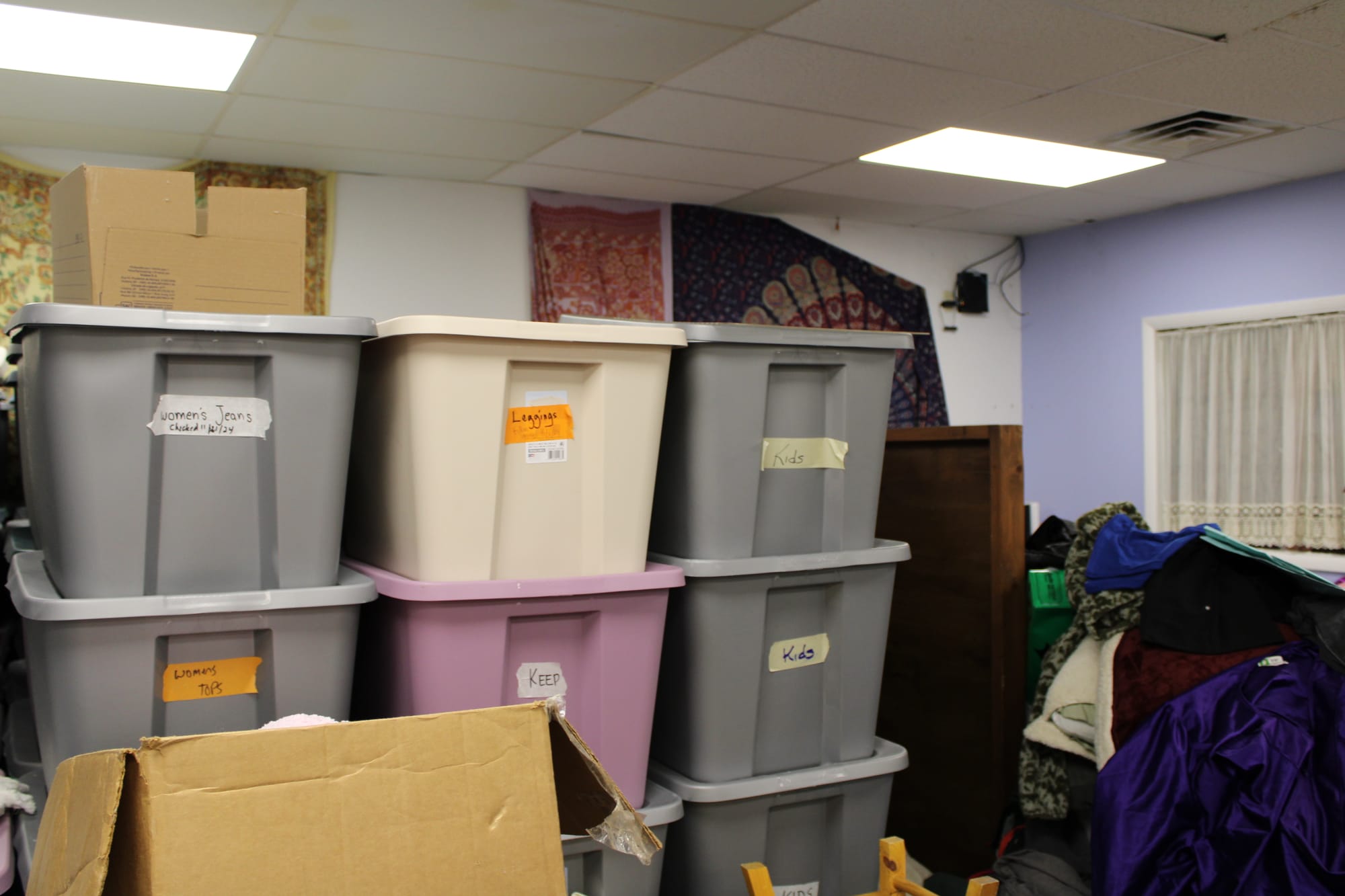
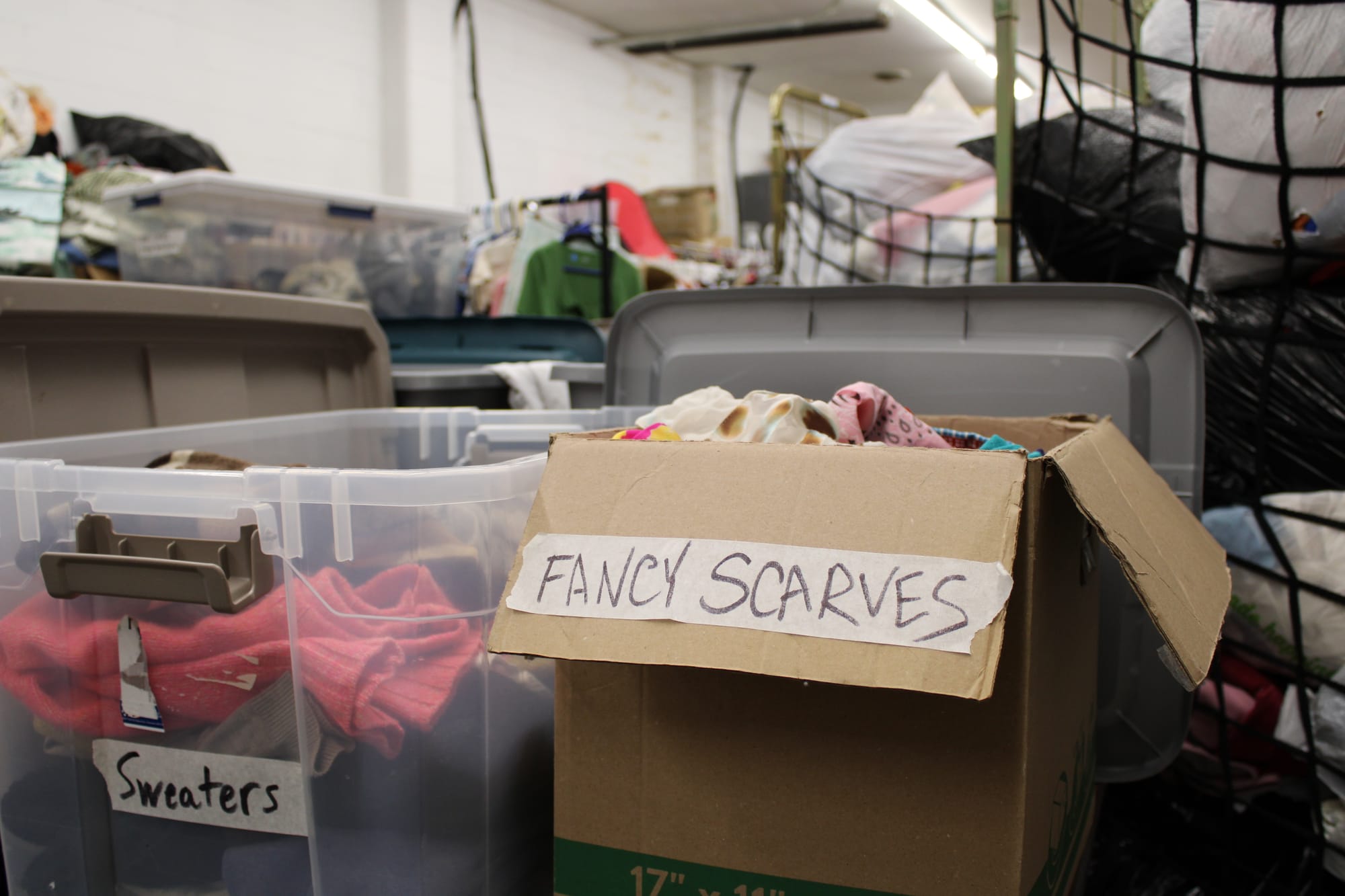
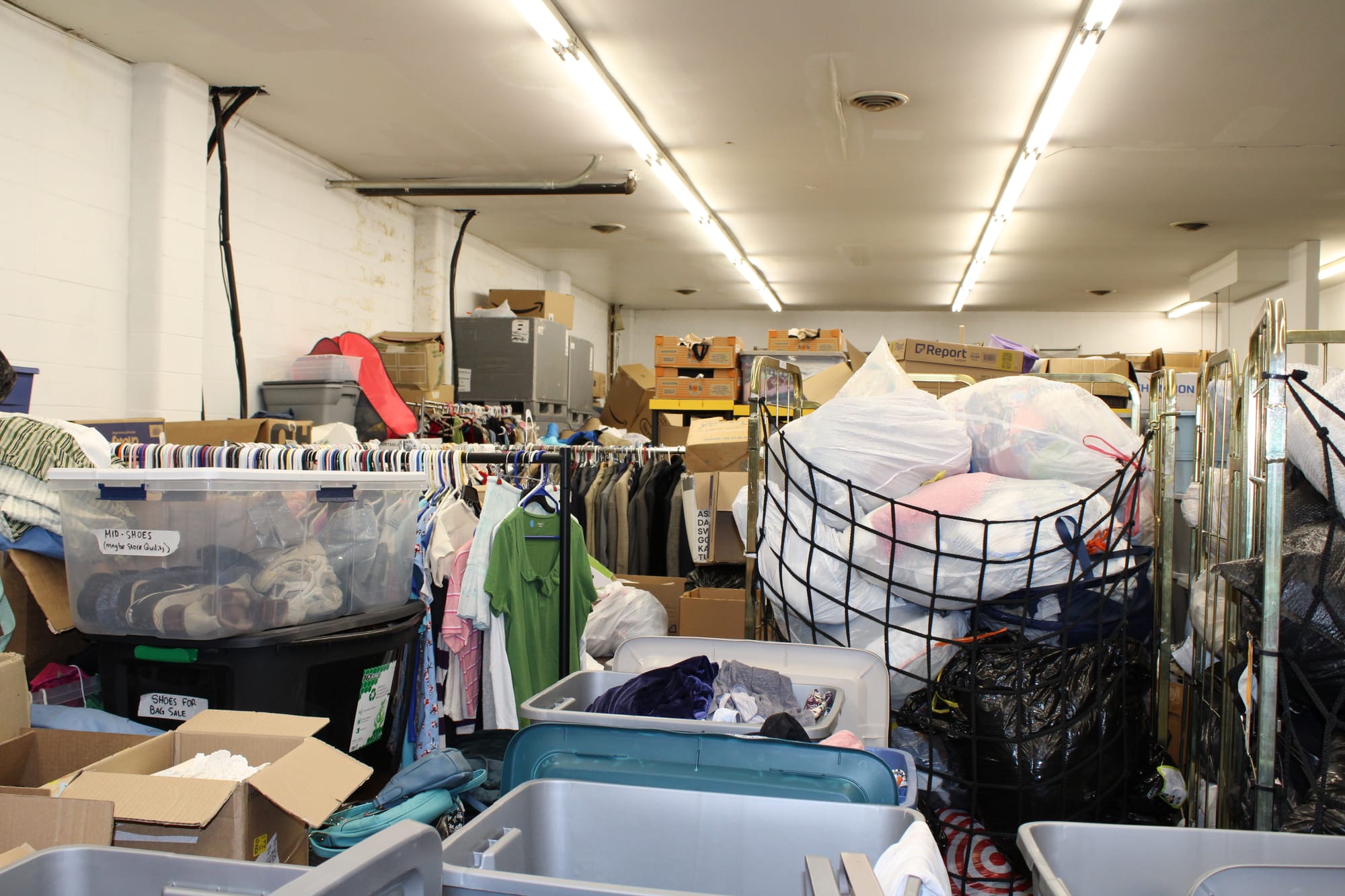
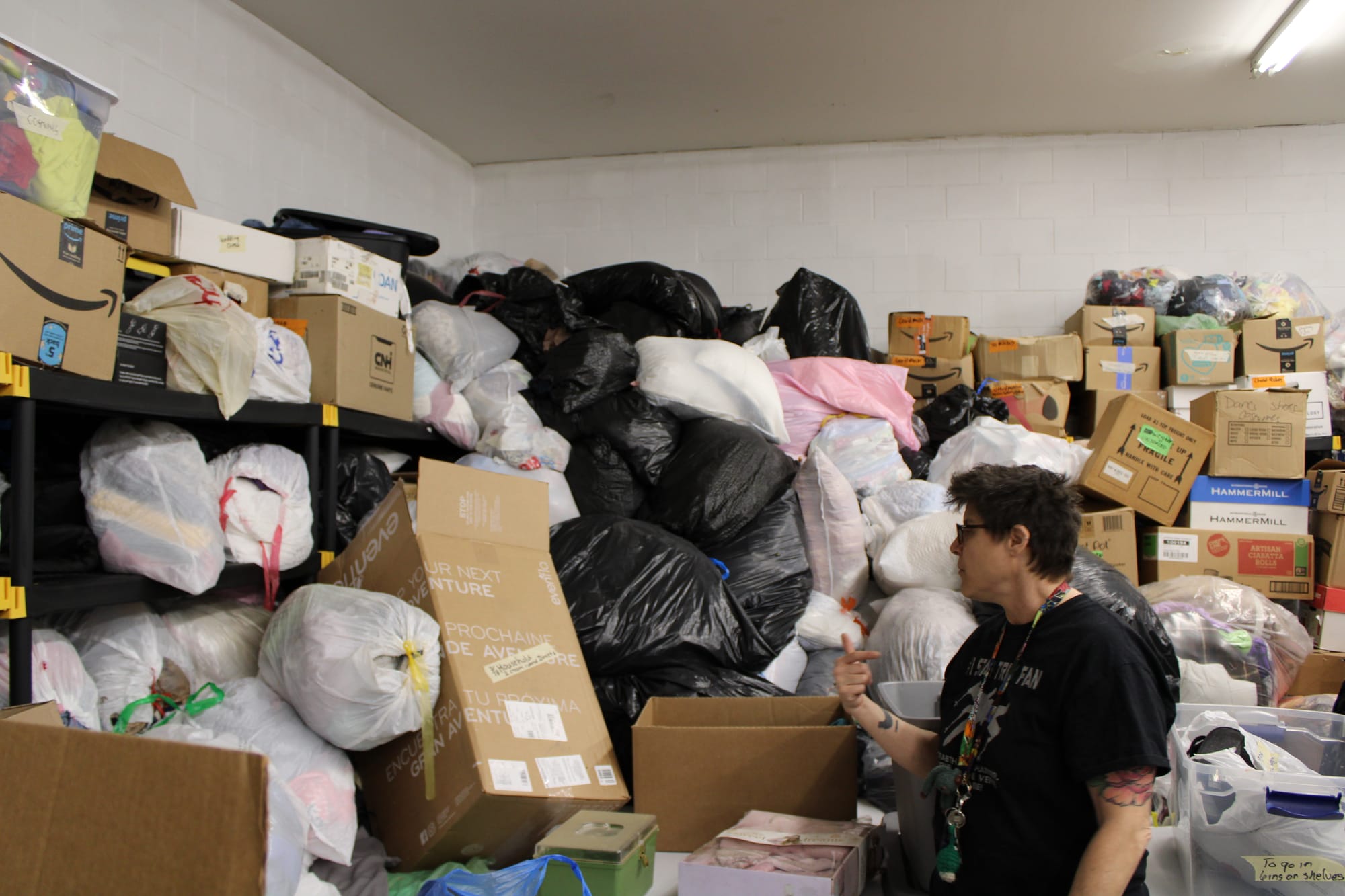
Thread Up processes two tons of textile donations every month. The nonprofit organization recently introduced processing fees to help support its operations. Photo by Sean Scott
Thread Up processes more than 4,000 pounds of textiles each month. The nonprofit’s operating costs come out to roughly $2.80 per pound, Rosenberg said. That’s why Thread Up introduced a processing fee of 25 cents per pound this month.
While it may seem strange to charge a fee for donations, Rosenberg said, both the money and the clothing go toward Thread Up’s broader mission of creating “a healthy wardrobe for a healthy community.”
“The community doesn’t realize sometimes that our mission is first and foremost textile waste reduction,” Rosenberg said. “I think that people just don’t realize the struggle that we have to pay for all the things to run a really big business.”
People who donate $75 to become a member for the year are exempt from the fees, as are certain items. Right now, people can drop off socks, children’s clothes, denim items, formal dresses, towels, yarn and some athletic gear in good condition without paying.
Beyond the new processing fees, Rosenberg said they’ve rebranded some of the clothing at the Uptown Threads location. High-end brands and vintage clothing used to hang with the rest of the items in the store, but they now run a small boutique section at the front of the shop with higher prices to further offset operating costs.
Without the changes, Rosenberg said, Thread Up was at real risk of folding. The organization has taken on debt for the past three years to maintain its two locations and continue to process new clothing, much of which it distributes for free. And while some employees are paid, Rosenberg herself didn’t receive a paycheck for her work with Thread Up until this month.
“We’re really gratified to see the support,” Rosenberg said. Since announcing the processing fees and boutique section, she said donors and others in the community have seen the necessity of fundraising and been receptive to the necessity of the changes.
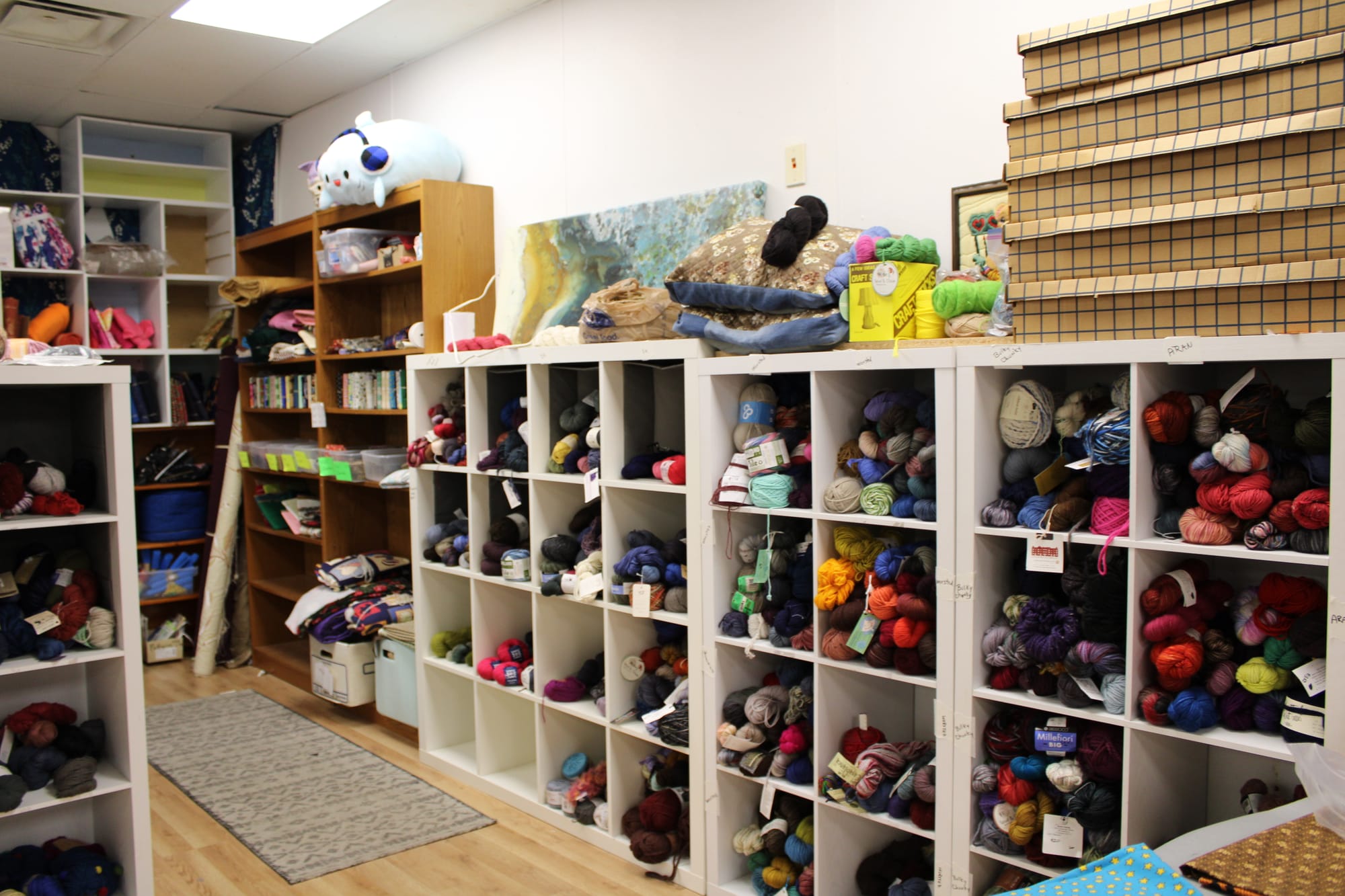
Thread Up may operate a storefront, but selling clothes for discounted prices isn’t the nonprofit’s primary mission. The organization provides vouchers for low-income families to get clothing for free, and Rosenberg provides children’s clothes free of charge at the Back to School Bash each August. Thread Up also makes frequent clothing and fabric donations for other organizations’ projects.
“We like consumption. We like to get new stuff,” Rosenberg said. “We do retail therapy, and a lot of what we buy is new, even though secondhand options exist. That is where a lot of this waste comes from, because we could have a circular economy, which is what I’m doing here. Use it until it is at the end.”
Thread Up accepts donations at 5156 College Corner Pike and sells clothing at Uptown Threads at 127 W. Church St. The organization relies on volunteers for some of its operations, and Rosenberg said they are also looking to expand Thread Up’s Board of Directors.


